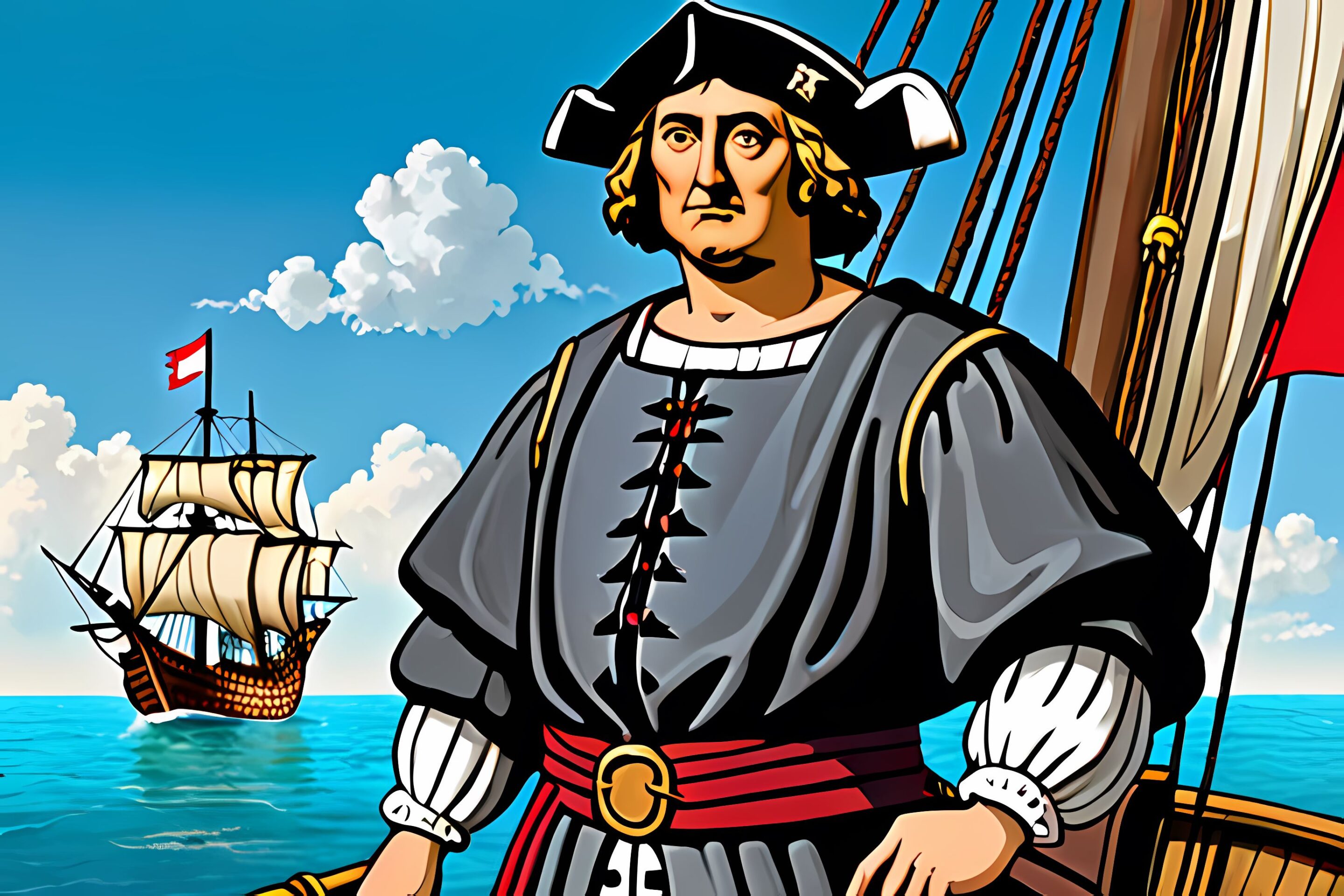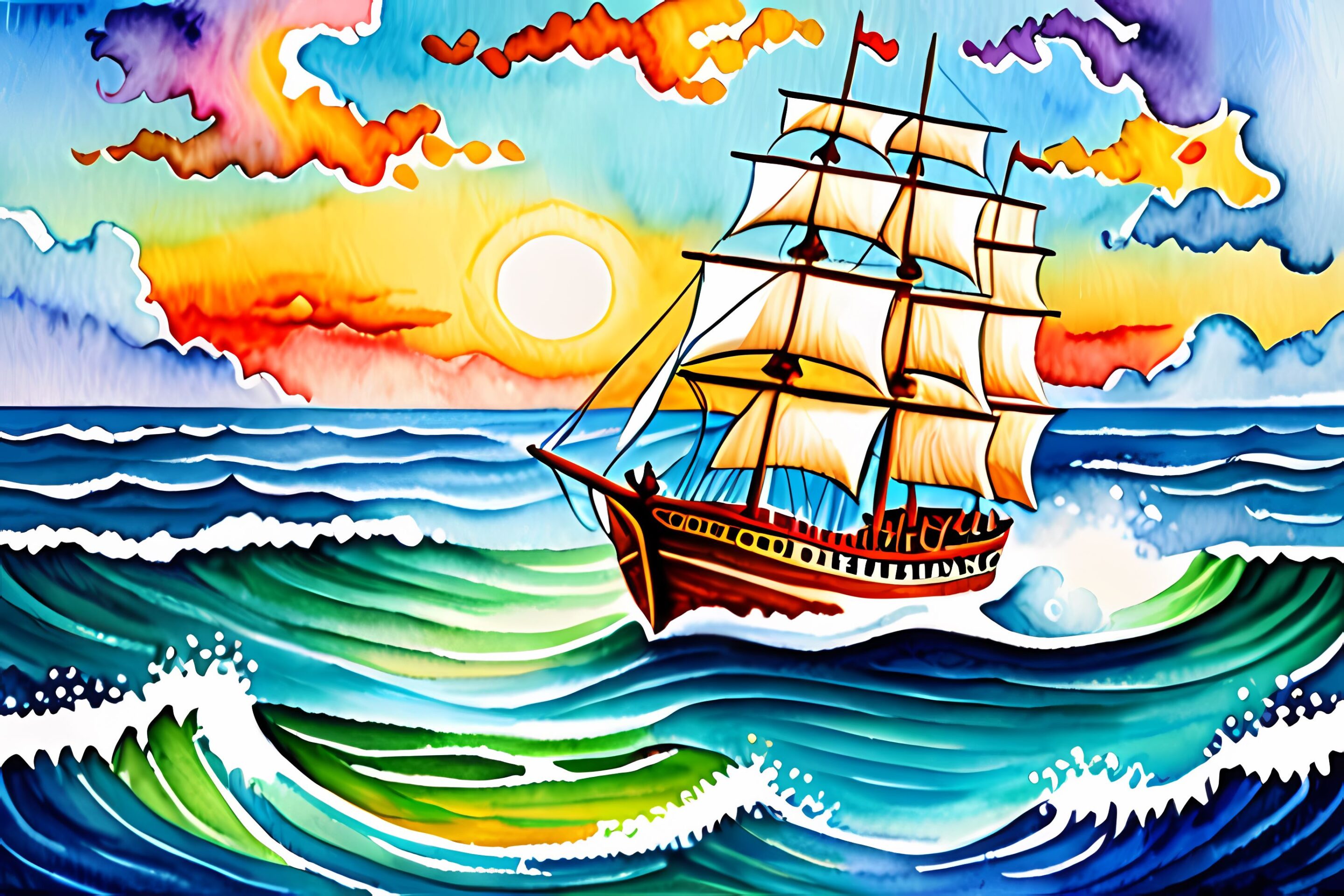Navigating uncharted waters takes courage. “You can never cross the ocean unless you have the courage to lose sight of the shore.” This profound statement, often attributed to Christopher Columbus, is a beacon of inspiration for those yearning to embark on new journeys, literally and metaphorically. In this blog post, we’ll delve into the origins of this quote, explore who Christopher Columbus was, draw lessons from the lives of explorers, and discuss how we can develop the courage to face new challenges.
The Saying’s Origin and Christopher Columbus:
While the exact origin of this quote is somewhat nebulous, it’s frequently linked to Christopher Columbus, the Italian explorer known for his 1492 voyage across the Atlantic Ocean. Columbus’s journey, funded by the Spanish monarchy, led to the European awareness of the American continents. His expeditions marked the beginning of centuries of exploration and colonization.
Columbus’s life story is a testament to the power of vision and perseverance. Despite skepticism and numerous rejections, he remained steadfast in his belief that a westward sea route to Asia was possible. His eventual success in crossing the Atlantic was a monumental achievement that changed the course of history. Despite his accomplishments, his legacy is now up for debate.

“You can never cross the ocean unless you have the courage to lose sight of the shore.“
Columbus is a controversial figure now. Christopher Columbus has become a controversial figure in modern times due to a re-examination of his expeditions and their impact. Critics point out that his voyages led to the colonization and exploitation of the Americas and its indigenous populations, resulting in significant suffering and cultural disruption. This perspective challenges the traditional narrative of Columbus as a purely heroic explorer, leading to debates about his legacy and how history should remember him.
Learning from Explorers:
Explorers like Columbus teach us invaluable lessons:
- Vision: They had a clear vision of what they wanted to achieve.
- Courage: They were willing to venture into the unknown.
- Resilience: They demonstrated an incredible ability to overcome challenges and setbacks.
Fortunately for us, our modern-day exploration is likely to cause problems! Adopting vision, courage, and resilience will help anyone set on personal development.
Navigating the Complex Legacy of Christopher Columbus: Your Questions Answered (FAQs)
Columbus’s legacy is controversial due to the negative impacts of his voyages, particularly on indigenous populations. His expeditions led to colonization, which brought about significant suffering, exploitation, and cultural disruption in the Americas.
Columbus is credited with opening up the Americas to European exploration and colonization. His 1492 voyage, in particular, is celebrated for proving that it was possible to sail westward from Europe to reach new lands, challenging the prevailing geographical beliefs of his time.
Historically, Columbus was often venerated as a great explorer who discovered the New World. However, modern perspectives increasingly acknowledge the detrimental consequences of his voyages on native populations, leading to a more nuanced and critical view of his achievements.
Yes, some historians and scholars suggest viewing Columbus’s voyages within the context of 15th-century exploration, acknowledging both the technological achievements and the human costs. This approach advocates for a balanced understanding that recognizes the complexity of historical events and figures.
Developing Courage for New Challenges:
Are you ready to take on new challenges? If you plan to set sail for distant shores (even metaphorically), heed these recommendations.
- Embrace Uncertainty: As explorers accept the unknown seas, we must learn to embrace uncertainty. It’s in the unknown that we find growth and new opportunities.
- Cultivate a Vision: Have a clear vision of your goals. What is your ‘new continent’? Keeping this vision in mind will help you navigate through tough times.
- Build Resilience: Resilience is critical. Learn from your failures and setbacks. Every explorer faced numerous challenges, but their resilience kept them going.
- Seek Knowledge and Prepare: While courage is essential, so is preparation. Equip yourself with the necessary skills and knowledge for your journey.
- Start Small: Begin with small steps outside your comfort zone. Gradually, these steps will lead to more giant leaps.
- Find Your Support Crew: Just as Columbus had a crew, surround yourself with people who support and believe in your vision.
These six strategies will prepare you to navigate. The more preparation for your life journey, the better your chance of reaching the destination.
Now’s the Time to Explore!
Christopher Columbus’s journey across the Atlantic is a powerful metaphor for personal development. It reminds us that it pays to be willing to venture beyond our comfort zones to achieve something extraordinary. By embracing vision, courage, and resilience, we, too, can navigate the uncharted waters of our lives and reach new horizons of success and fulfillment.
Remember, every incredible journey begins with the courage to lose sight of the shore. What shore are you willing to leave behind in pursuit of your dreams?





